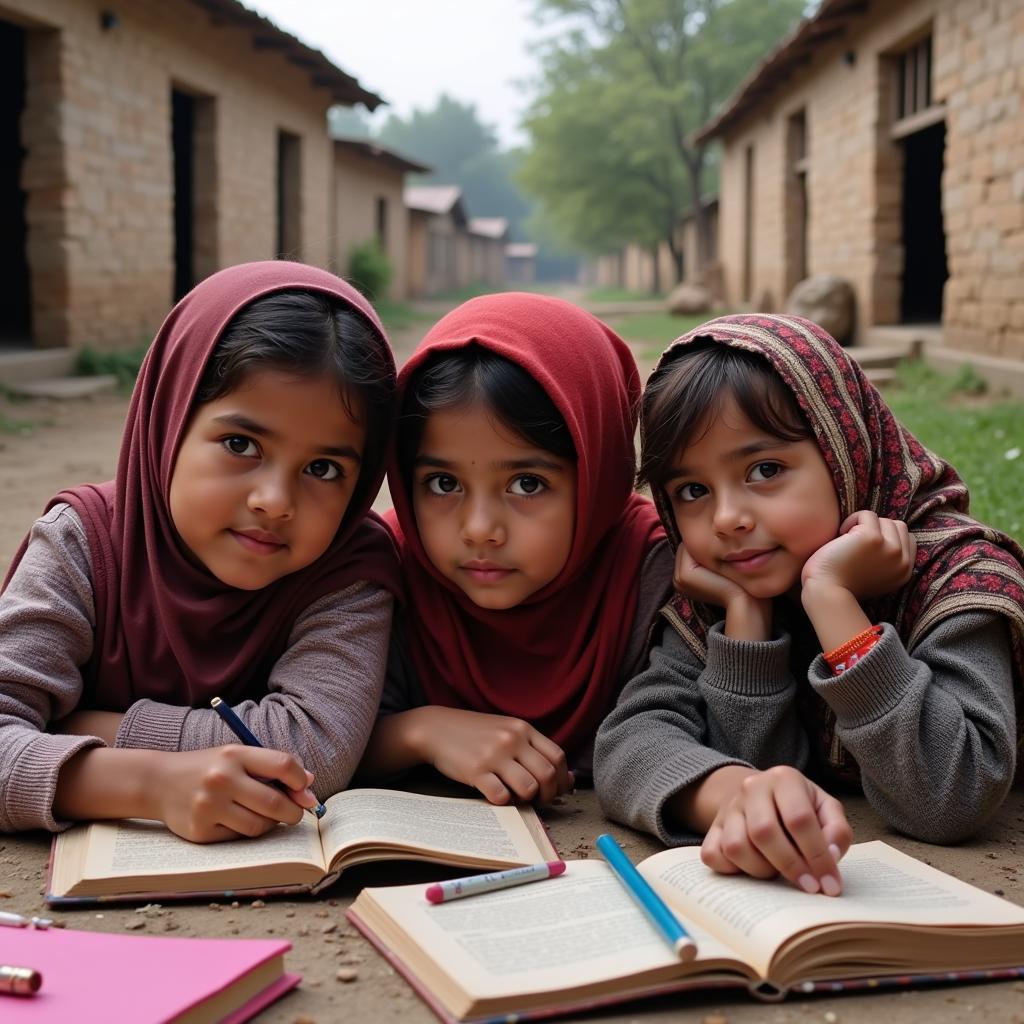Gender inequality remains a pervasive issue in Pakistan, impacting various aspects of life from education and employment to political representation and legal rights. This essay will delve into the complexities of gender inequality in Pakistan, exploring its root causes, manifestations, and potential solutions.
 Gender Inequality in Pakistani Education
Gender Inequality in Pakistani Education
One of the most significant manifestations of gender inequality in Pakistan is the disparity in access to education. While progress has been made, a significant gap remains between male and female literacy rates. This educational disparity perpetuates a cycle of disadvantage, limiting women’s opportunities for economic empowerment and social mobility. what are the main problems of education in pakistan provides further insights into the challenges faced by the education system in the country. Furthermore, cultural norms and traditions often prioritize boys’ education over girls’, reinforcing the perception of women as primarily homemakers.
The Root Causes of Gender Inequality in Pakistan
The roots of gender inequality in Pakistan are complex and multifaceted, intertwined with historical, cultural, and socio-economic factors. Patriarchal societal structures, deeply ingrained cultural norms, and religious interpretations often contribute to the subordination of women. These factors influence attitudes towards women’s roles in society, limiting their opportunities and perpetuating discriminatory practices.
 Gender Inequality in Pakistani Workplace
Gender Inequality in Pakistani Workplace
Economic Disparity and Gender Inequality
Economic disparity plays a significant role in perpetuating gender inequality. Women in Pakistan often face limited access to employment opportunities and economic resources. They are often relegated to low-paying, informal jobs with limited job security and benefits. This economic vulnerability further reinforces their dependence on men and limits their ability to exercise agency and control over their lives. social evils in pakistan essay discusses further societal issues that intersect with gender inequality.
“Economic empowerment is crucial for women to challenge traditional gender roles and achieve equality,” says Dr. Ayesha Khan, a leading sociologist at Lahore University. “When women have financial independence, they are better equipped to make decisions about their own lives and contribute meaningfully to society.”
Addressing Gender Inequality in Pakistan: A Call for Action
Tackling the deep-rooted issue of gender inequality requires a multi-pronged approach. Legislative reforms, educational initiatives, and awareness campaigns are all essential components of a comprehensive strategy. Strengthening legal frameworks to protect women’s rights, promoting girls’ education, and challenging discriminatory social norms are crucial steps towards achieving gender equality.
Education as a Catalyst for Change
Education is a powerful tool for social transformation and a key driver in the fight against gender inequality. Investing in girls’ education is not only a matter of human rights but also a crucial step towards achieving sustainable development goals. equal education system in pakistan explores the importance of equal access to education. Providing girls with equal opportunities for education empowers them to break the cycle of poverty, challenge traditional gender roles, and become active participants in society. education system in pakistan essay and literacy in pakistan essay offer a broader perspective on the educational landscape in Pakistan.
“Education is the most effective weapon against gender inequality,” asserts Ms. Fatima Ali, a prominent women’s rights activist. “Educated women are more likely to challenge discriminatory practices, advocate for their rights, and contribute to the economic and social development of their communities.”
Conclusion
Gender inequality in Pakistan poses significant challenges to the country’s social, economic, and political development. Addressing this complex issue requires a concerted effort from all stakeholders, including government, civil society organizations, and individuals. By investing in girls’ education, promoting women’s economic empowerment, and challenging discriminatory social norms, Pakistan can pave the way for a more equitable and just society.
FAQ
-
What are the main causes of gender inequality in Pakistan?
-
How does gender inequality impact education in Pakistan?
-
What are the economic implications of gender inequality in Pakistan?
-
What role can education play in addressing gender inequality?
-
What legal reforms are needed to promote gender equality in Pakistan?
-
How can men contribute to the fight against gender inequality?
-
What are some successful initiatives that have addressed gender inequality in Pakistan?
For further support, please contact us at Phone: +923337849799, Email: [email protected] or visit us at Dera Ghazi Khan Rd, Rakhni, Barkhan, Balochistan, Pakistan. We have a 24/7 customer service team.